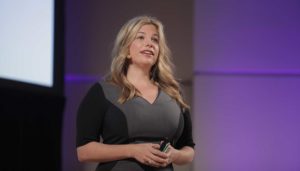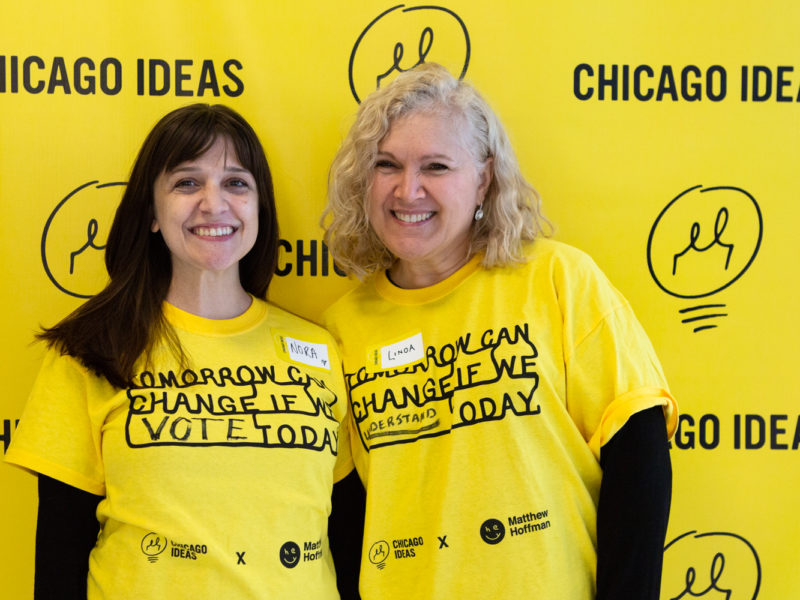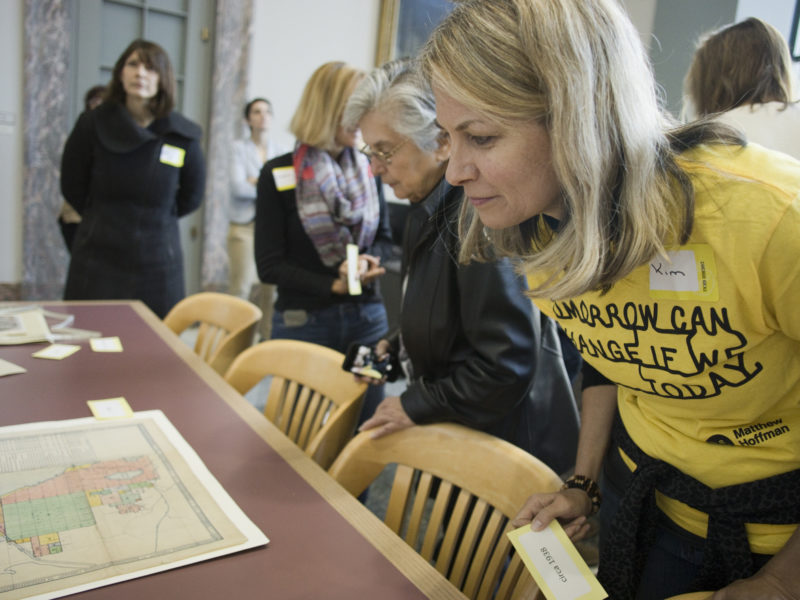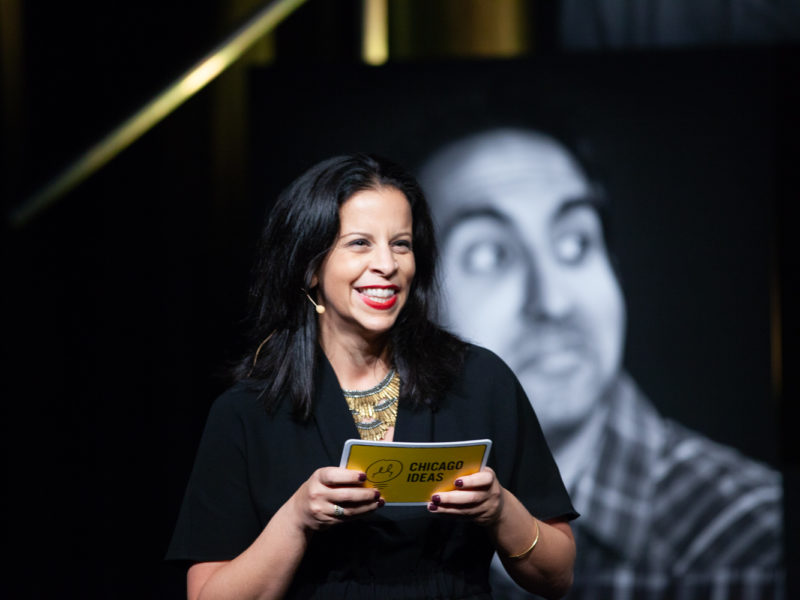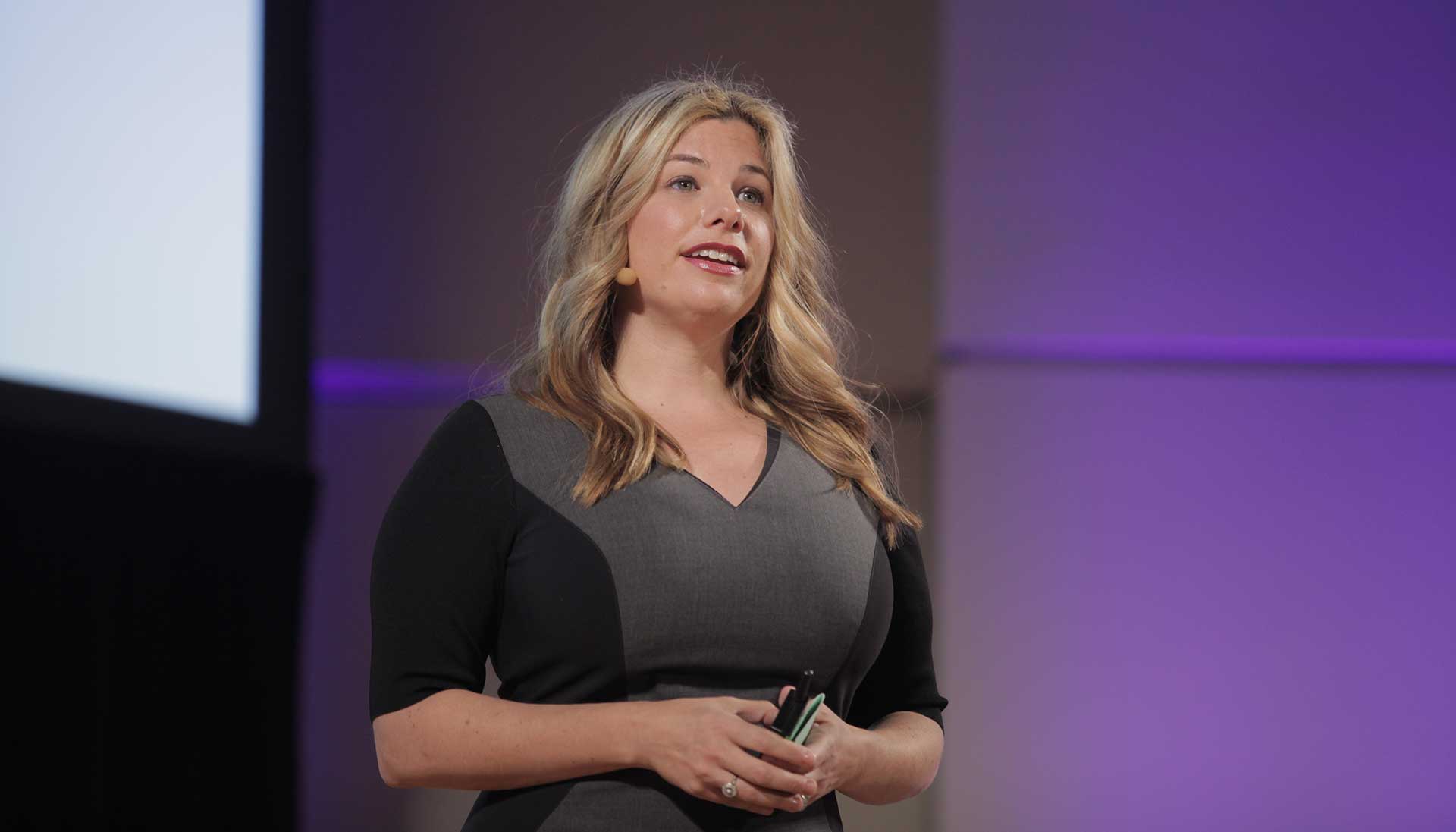
Living Loss Out Loud with Modern Loss’s Rebecca Soffer
After the death of her parents, CIW speaker Rebecca Sofferfound one way of dealing with loss most helpful: living her grief “out loud.” So, in November 2013, Soffer—feeling “under the gun,” she admits, “because I was a few weeks away from giving birth”—launched Modern Loss, a digital community centered around sharing stories of loss. Just a few months later, she and the site’s co-creator and co-founder, Gabrielle Birkner, were spotlighted in The New York Times in an article that argued that technology was changing the very face of something we’ve all experienced: grief.
Modern Loss’s approach to grief has always been one of fearlessness. The stories posted to the site don’t wince from the pain, confusion and hilarity that come with the “messy” sides of grief and loss. And, in fact, the site’s rapid growth can at least in part be attributed to Soffer’s unique willingness to acknowledge the humor in loss—a trait perhaps not unexpected from a former Colbert Report field producer. In the coming year, the community Soffer has created will only expand, as she takes her message from the digital to in-person at events like CIW’s Death: An Unexpected Take on Life on Tuesday, October 14.
Your website, Modern Loss, is creating a community of individuals who have all experienced loss—a group of people who, as you’ve said before, just “get it.” Why is it important to have that type of community?
Loss is something everybody eventually experiences, and I think it’s safe to say it’s a really isolating feeling. It doesn’t matter if someone really close to you also lost that person. You are going through your own experience, which is different from anybody else’s. I think it can be a very lonely feeling, even if you are surrounded by people who want to help you all the time.
I think it does help to meet people who get it. And I say get it in terms of get what it’s like to have somebody taken away from you, be it from a long illness or suddenly. They just know what it’s like to have this gaping hole in their existence that’s never going to be filled to a certain extent. Just being able to talk to that person against the backdrop of getting it, of just knowing that you’re both people who experienced a profound loss—it allows you to breathe a sigh of relief. There’s so much less that you have to explain to each other. They know where you’re coming from.
Your site is less than a year old—it launched in mid-November 2013. Why do you think Modern Loss has created such a strong community, so quickly?
Our site has struck a chord with a lot of people. We’re not glib about how we talk about loss. We talk about it out loud. We admit that it’s messy and not tied up and packaged with a little bow. Sometimes there’s no closure, sometimes there’s resentment, sometimes there’s relief, sometimes there’s hilarity. You really have to acknowledge all of those feelings because if you don’t, I think it’s hard to really be comfortable in your day-to-day life, interacting with the people you care about.
The more you can be in touch with the fact that loss is a very complex experience that lasts for the rest of your life, [the more I think] that enables you to live a much more examined life, and a much more authentic life.
Loss is very complex, which is why I think it’s so powerful that your site uses the term “loss” instead of “grief.” Grief conjures up a very specific picture—it’s one type of feeling—but as you said, losing someone can bring up a wide range of feelings.
Our tagline is “Candid conversation about grief. Beginners welcome.” And it is conversation about grief, but the name of our site is Modern Loss because I don’t think that you—what do I know, all I know is my own experience—but I don’t go about my day-to-day life viewing myself as a grieving individual. I view myself as someone who is living with loss. To me, that is a much more active approach to living, as opposed to passive approach. It makes me feel like I’m still going about my life and I’m living with this loss, as opposed to I’m always grieving. You aren’t going to be 24/7 really depressed, always crying, but 24/7 you will be living with loss, with the hole in your heart that exists from losing that person or those people and that loss takes on various forms and comes out throughout various triggers throughout your entire life.
I think that some people assume that those triggers are mostly the big moments: the day you get married or when you have a kid or maybe when you get a doctorate. But it’s really just the quotidian moments. It’s everyday. It’s when you’re in the grocery store, in aisle six, and pick up an Aunt Jemima container and a memory slams into you.
So, when you talk about the humor, the moments of “hilarity,” are those moments these same quotidian events?
Absolutely. I personally feel like you have to recognize the humor in loss because it is so messy.
I remember I was on a date a few months after my mom died. The guy asked me where my parents were. I told him that my mom was dead. I literally heard crickets—I’m not kidding because we were sitting outside, and it was summer time—you just can’t make this stuff up. He got so awkward, and the date ended after a couple of minutes. It ended with me being put into a taxi and sent home. I had no idea what happened. At the time, it was kind of painful, but when I recounted it to my friends, we realized it was actually very funny. It was so hilariously uncomfortable that you just have to laugh. You have to. It’s the only thing that gets you through it. And it’s not being disrespectful. It’s just that, if you can’t laugh, what’s the point of anything?
When someone brings up loss—as you did on your date—how would you hope people would react? How should we all approach a topic that, as you admit, is “taboo” in this country?
I would hope that some day people going through loss don’t feel for the most part that they need to take on the responsibility of making everybody else feel comfortable talking about it, or apologize for the fact that they’re living with loss. People feel uncomfortable when you bring up the topic of grief or loss.
Right now, it’s the thing that makes the record screech to a halt. This is a country where Marion Barry can still get reelected mayor of D.C. after a crack cocaine bust (ok, maybe I’m dating myself with this reference!) but we can’t talk about grief openly. There’s really nothing to be embarrassed about. It’s going to happen to all of us. I don’t know why it’s so taboo.
Q&As are edited for clarity and length.


